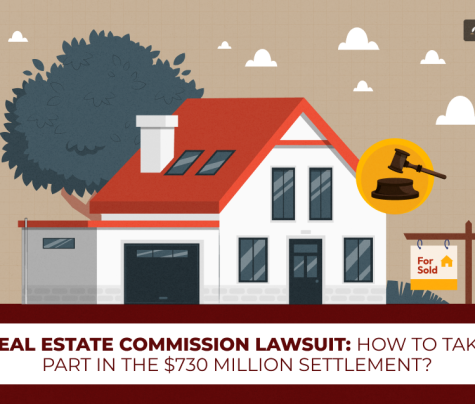
Today’s hot topic: 72 Sold Lawsuit.
Just think about it: you are selling your house. And out of the blue, you find yourself in the middle of a legal conflict. A few months ago, the 72 Sold Lawsuit made headlines, raising eyebrows among legal experts, real estate professionals, and homeowners alike.
But what is actually going on? More importantly, how is it impacting the overall real estate landscape?
Let’s find out.
What Is The 72 Sold Lawsuit? (At A Glance)
The 72 Sold lawsuit is rooted in a real estate plan that promised homeowners that they could sell their homes within 72 hours.
The program does sound very enticing. But several participants have come up with problems related to transparency and the lack of fine-print documentation needed for such quick transactions.
Origins:
The concept and purpose behind the 72 Sold program is to streamline the entire selling process for the benefit of homeowners who are looking for fast sales.
But soon the program faced scrutiny – mainly for the lack of transparency and documentation. This, in turn, led to a legal conflict and several challenges that could possibly redefine this program’s entire future.
Key Issues:
The major criticism of this lawsuit is that it lacks transparency. Moreover, homeowners have actually claimed that the program has misled them when it comes to commissions and fees.
In this context, we have laid out below the key concerns that arise out of a lack of transparency in this lawsuit:
| Key Concerns | Details |
| Hidden Fees | Homeowners allege that they did not know about certain expenses. |
| Legal Representation | Problems with accessing proper legal help during the sale. |
| Marketing Practices | Homeowners made claims about misleading advertising related to quick sales. |
Legal Implications:
This lawsuit does raise multiple legal implications. One of which is the probable violation of the consumer protection laws. Yes, even if a single homeowner felt like they had been misled, they have every right to look for compensation for any damage incurred during the entire selling procedure.
72 Sold: The Fast-Track Home Buying Solution Or A Scam?
You might be scratching your head wondering, “What exactly is this 72 Sold.com we keep hearing about?”
72Sold.com is a real estate company based in Scottsdale, Arizona, founded by Greg Hague in 2018.
It’s a real estate website that promises a whirlwind experience – selling your home in a lightning-fast time frame, often advertised as 72 hours or less. This can be music to your ears if you’re facing a tight deadline to move or simply crave a quick turnaround.
The core idea behind 72Sold.com is to create urgency among buyers by limiting their time to view and make offers on a property. This strategy is designed to generate competition and excitement, which can lead to quicker sales and potentially higher prices.
The company claims that homes sold through their program achieve a median price 7.8% higher than those listed on the Multiple Listing Service (MLS).
Here’s how it works:
- Speed Demon Sales: 72 Sold.com boasts a rapid-fire approach, aiming to get your house off your hands in the blink of an eye. This can be attractive if you’re eager to close the chapter on your current home and embark on a new adventure.
- Auctioneer Ambiance: Instead of traditional showings, they utilize an “auction” format where multiple pre-approved buyers compete for your property. This can sound enticing because it injects a sense of urgency and potentially drives up the final selling price, leaving you with a bigger check in your hand.
However, since last year, people have been saying that this real estate one-stop homebuyer’s solution does not really work in the way it claims.
What Are The Major Allegations In The Popular 72 Sold Lawsuit?

The recent 72 Sold lawsuit against a group of agents using the 72 Sold.com platform throws a wrench into this fast-paced scenario.
The allegations that one can find all over the internet suggest that some agents may have resorted to deceptive marketing tactics to achieve those lightning-quick sales.
Here are some of the alleged wrongdoings that 72 Sold has been accused of:
- Hidden Fee.
- Offer Quality.
- Limited Control.
You might not have time for traditional open houses where potential buyers can leisurely explore your property or engage in individual buyer negotiations, potentially limiting your options to secure the best possible offer.
72 Sold Lawsuit: Everything You Need To Know About The Lawsuit
According to what most of us can find on the internet, or what has been made popular, the legal fight against 72 Sold began when homeowners apparently came together and filed complaints against 72Sold.com due to dissatisfaction.
And, guess what? Several blogs on the internet also state that these homeowners were former clients of the real estate company.
Among the various other issues that homeowners had with the marketing strategy of the company, one thing that garnered the most attention was the promise of selling houses quickly.
So, what did these former clients mention in their complaint? Let me tell you! These are some of the things that most blogs that you will find online say about the allegations in the lawsuit:
1. Misleading Advertising:
At first, 72 Sold launches an ad campaign claiming that they can sell houses in no more than eight days. Then again, some of the homeowners have come out to say that this has not necessarily been the case.
The lawsuit asserts that the company’s propaganda is deceptive because there is no promise that all the homes will be sold within the agreed time.
2. Deceptive Practices:
The next thing is that there are some doubts about the openness of the commission structure and the fees of 72 sold.
People selling their homes have reported encountering unexpected costs and fees that were not clearly disclosed at the outset.
In the lawsuit, it is claimed that such deceptive conduct occurred, and financial losses due to these practices are expected for both buyers and sellers.
3. Lack of Disclosure:
Moreover, in the lawsuit, another point is that 72 Sold has allegedly not disclosed sufficient information.
The people who have sold their homes affirm that the company has been hiding the essential part of the information, which includes extra fees and charges.
What Is The TRUTH About 72 Sold Lawsuit? Is There Really A Lawsuit Going On?
Now, the truth is, irrespective of how many people on the internet are telling you about the existence of a 72 Sold lawsuit, there isn’t any going on. Yes, you read that right!
As far as I think, this entire “lawsuit” was a propaganda that aimed to tarnish the reputation of Greg’s 72 SOLD company.
Generally, whenever there is an ongoing suit, most of us can easily find out about the case details on certain legal forums like Top Class Actions, Lawsuit Information, or even Justia.
However, there was no such information available online that could point to whether there REALLY was a case against the company.
Is 72 Sold A Lawsuit Legit Company?
The shortest answer to this question is yes. It is a legitimate company. According to Better Business Bureau, “72 Sold offers a home selling program designed to sell homes in 72 hours while providing a better experience for home sellers, giving them greater ease, convenience, and a higher priced sale.”
But how much of it really works?
Explaining the claims that Greg has made about selling a property in 72 hours, TINA Organization stated that the official website of the company “says it has seven independent studies showing that home sellers who used the 72SOLD program had a median sale price averaging 8.4%-12% higher than other homes sold in their local MLS, or multiple listing service, a database of homes for sale in a particular geographic region, as well as 2,000+ 5-star Google reviews.”
They mention that while it might be true that 72 Sold might have sold “more than another home in the same local MLS,” it does not really mean that they have been able to sell the property at a higher price.
Therefore, while the claims made by the real estate fast selling company might look appealing, it is important for clients to actually understand what they are getting into before they finally decide.
Laws Protecting Clients Against Real Estate Scams

In the United States, laws that protect consumers against real estate scams are primarily enforced through a combination of federal and state regulations, as well as consumer protection agencies.
The main focus areas are the fraud time limits, consumer protection laws, and special regulations, for example, targeting title fraud.
Federal Laws And Agencies:
- Federal Trade Commission (FTC): The FTC is the principal federal agency that deals with investigations and prosecutions of fraudulent business practices, among them are real estate scams.
- Real Estate Settlement Procedures Act (RESPA): RESPA is a regulation that sets forth the procedure of mortgage lending and the provision of settlement services. It is hoped that the consumers will be protected from kickbacks and other deceptive practices that may be committed by the parties concerned
- Truth in Lending Act (TILA): TILA specifies that lenders have to disclose the conditions and the cost of loans to assist consumers in making decisions and to be safe from predatory Lenders.
- Wire Fraud Statutes: Particularly, the prohibition of wire fraud is the statute that is most often applied to prosecute cases of electronic communication fraud, which usually includes a part of online real estate fraud.
State Laws And Regulations:
- Real Estate Fraud Statutes: There is a set of conditions defining real estate fraud and afterward outlining the punishment for this act that the states create on their own. These laws further specify the period during which it is allowed to file a case concerning fraud, along with the limitation of offenses.
- Consumer Protection Laws: States themselves have their consumer protection laws reflecting the federal regulations and also providing additional ways of redressing against scams.
- State Licensing Boards: Local real estate agents and brokers are usually licensed by state boards. These boards have the power to discipline them if they commit fraud.
- Title Insurance: Title insurance is a way for buyers to be made whole in case they suffer any loss that comes from the problems with the title of the property, including if it is a fraud case.
And It’s A Wrap!
While the 72 Sold lawsuit is going to unfold, it is vital for both real estate professionals and homeowners to be aware and informed. The real estate landscape is evolving. As a result, being somewhat proactive will lead to improved outcomes.
In this context, here are three steps that you can take today:
- Do thorough research: before you can engage with any rapid sale program, always understand all the terms and conditions.
- Consult professional experts: get in touch with experts, legal advisors, and real estate professionals to clarify your doubts.
- Stay updated: always keep an eye on what is happening regarding this lawsuit. That way, you will know the exact implications of the same for the real estate market.
Frequently Asked Questions:
Check out the most frequently asked questions related to the 72 Sold Lawsuit:
Yes. Conventional selling methods and other quick sale options might be available. But it always depends on individual circumstances.
The potential outcomes of the lawsuit include changes in the firm’s practices, possible settlements with impacted homeowners, and some other legal repercussions.
Yes. 72 Sold is a legal brokerage accompanied by full-service agents or brokers. The Arizona-based company was launched in 2018 by Greg Hague. Their unique promotional plan was designed to sell a client’s home quickly at the highest offered price.
Read Also:
- Kennedy Funding Lawsuit and the Exploitation of Arkansas Statute of Frauds
- Real Estate Commission Lawsuit: How to Take Part in the $730 Million Settlement?
- Smoothstack Lawsuit: Beware of Unlawful Wage Scheme and Employment Contracts












0 Reply
No comments yet.